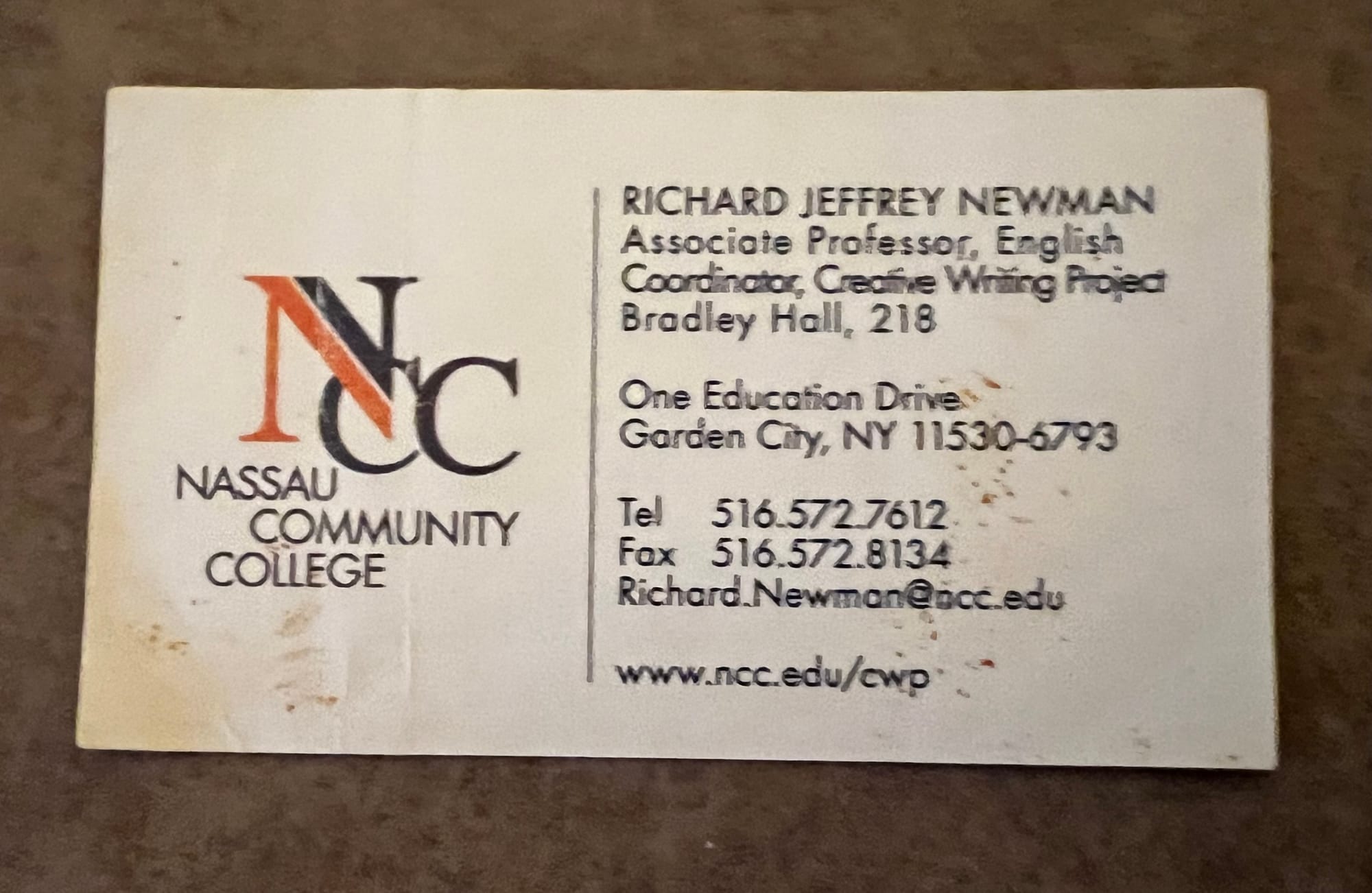A poet and essayist, I write about gender and sexuality, Jewish identity and culture, writing and translation. My goal? To make connections that matter. I also help other writers do the same.


Gypsy and Archie at night.
The student to whom you gave an incomplete in good faith because they really were confronted with serious difficulties at the end of the semester, and seemed very serious about completing the work they were unable to do, who then tries to get over on you with a paper written by an AI that was not “smart enough” not to invent quotes and poems that do not appear in the text you assigned.
Preamble
We are starting to roll. We are coming to you
through the internet. And when the weather is right,
masked, we are coming to your door. We will ring
the bell, then step back six feet and wait for you
to pick up the leaflets we have left in your mailbox.
And we will wait for you to open them up and look
over at us and ask, why did you take so long...as you
tell us that you have had your bag packed but
you will not go anywhere except to the ballot box.
Not now. The current occupant has gone too far,
broken every rule and every dream. And we are
going to post them back, on the walls, on columns,
and in the official residence of our dreams, the house
of the people we will rescue at 1600 Pennsylvania Avenue.
—Indran Amirthanayagam, from Ten Thousand Steps Against The Tyrant

The morning view from my window...
Once upon a time...

A memoir is a representation of the author's encounter with memory. It is a compromise with the demands of narrative and that medium we call a book. It is less a record of the past than the record of a sustained questioning, reflective authorial inquiry.
—Richard Hoffman, “Backtalk and Backlash: The Aims, Impact, and Value of Memoir,” in Remembering The Alchemists
“A self must learn. The body is. The body knows. A self learned to act as if it is real, and learned to ignore what the body knows. The body transcends the self and not, as religions have it, the other way around; even when they posit a stand-in for the self called the soul, the idea is that a personal transcendence is possible and ought to be sought after. Begin with that orientation to the divine, and one can talk all one wants about charity, generosity, brotherhood—it's every man for himself. Even before there were religions there was religious war.”
—Richard Hoffman, “Like Never Before,” in Remembering The Alchemist
Interesting to compare these two views, written four hundred years apart or so:
All men and women are to each other
the limbs of a single body, each of us drawn
from life’s shimmering essence, God’s perfect pearl;
and when this life we share wounds one of us,
all share the hurt as if it were our own.
You, who will not feel another’s pain,
no longer deserve to be called human.
–Saadi of Shiraz (my translation)
§§§
All mankinde is of one Author, and is one volume;
when one Man dies, one Chapter is not torne out of the booke,
but translated into a better language;
and every Chapter must be so translated.
–John Donne, Devotions
Why is it that the final poem of the book you're working on, the one that ties the entire volume together, always proves to be the most difficult to revise?

A gull in Oban, August 2024.

Lines That Didn't Make The Cut
Across the span, as counterpoint, a flock
of pigeons lifted into flight. “We get,”
he said, “a bullet each. If you do not die,
you do not die.” Nothing I regret
hurts more than this: I watched the cloudless sky
refuse to darken; I did not watch their guns
refuse to kill, or the rising of all those suns.